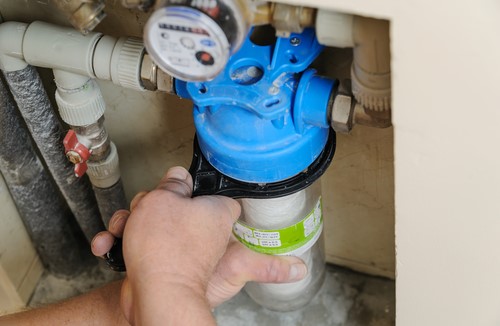Tap water that we use for in our daily purpose contains minerals like calcium, lime, chalk, and magnesium. The increased levels of these minerals in water make it hard. Hard water is unhealthy for consumption and for domestic use. Although many people use mineral water for drinking, excessive use of mineral water can result in health and domestic hazards. It’s essential to remove excess levels of minerals from water to make it suitable for drinking as well as for domestic use like bathing, washing, cleaning, etc. Water softeners are filters that convert hard water into softer water by filtering out the minerals.
Below are few important reasons why you should install a water softener in your home:
1. Easier Cleaning
When you wash dishes and clothes in hard water, they may end up with white spots, streaks, and soapy residue. Soft water helps to rinse off the soap residue more thoroughly, leaving your dishes and clothes cleaner. Moreover, water softening also reduce the amount you use for detergent or soap you need for cleaning, which helps to save your expenses for these products.
You will notice that house water softeners prevent the detergent curd and soap film buildup in bathtubs, showers, sinks, and other cleaning devices, and they stay cleaner and efficient.
2. Keep Your Skin Smooth and Well-Nourished
The calcium and magnesium present in hard water mix with anions in soaps resulting in soap scum on your body or sticky skin. This film does not dissolve even with rinsing and stays on your skin causing clogged pores, skin irritation, and dry or itchy skin.
Moreover, using dry water on the skin can also lead to acne. Therefore, install water softener in your home because bathing with soft water is better for your skin.
3. Extended Water Appliance Life
Minerals of hard water can buildup in washing machines, dishwashers, coffee makers and other water appliances. This can result in clogging of minerals within these devices which can cause them to burn out. It’s better to invest in a water softener that will prevent the minerals from building up within these appliances.
Therefore, use of soft water helps to extend the life of water appliances. You will end up saving money because these devices will last longer, and you will be replacing them less frequently.
4. Faster Heating of Water
Your water heaters can quickly heat soft water, while heating hard water requires comparatively more time. It is estimated that water softeners can improve the efficiency of electric water heaters by 22 percent and that of gas water heaters by 29 percent. If you are using a walk in tub, it will help in faster heating of water for bathing.
Hard water can also cause mineral buildup in the water heaters, decreasing their efficiency to heat water. Water softeners improve the efficiency of water heaters resulting in lower utility bills.
5. Reduce Pipe and Faucet Damage
Hard water causes scaly deposits in pipes and faucets. Your home plumbing system is severely affected as these deposits buildup over time, resulting in clogs and corrosion.
Moreover, hard water can also clog your showerheads and valves. Water softeners eliminate the mineral buildup in your plumbing system, extending its life and helping your fixtures to operate effectively.










